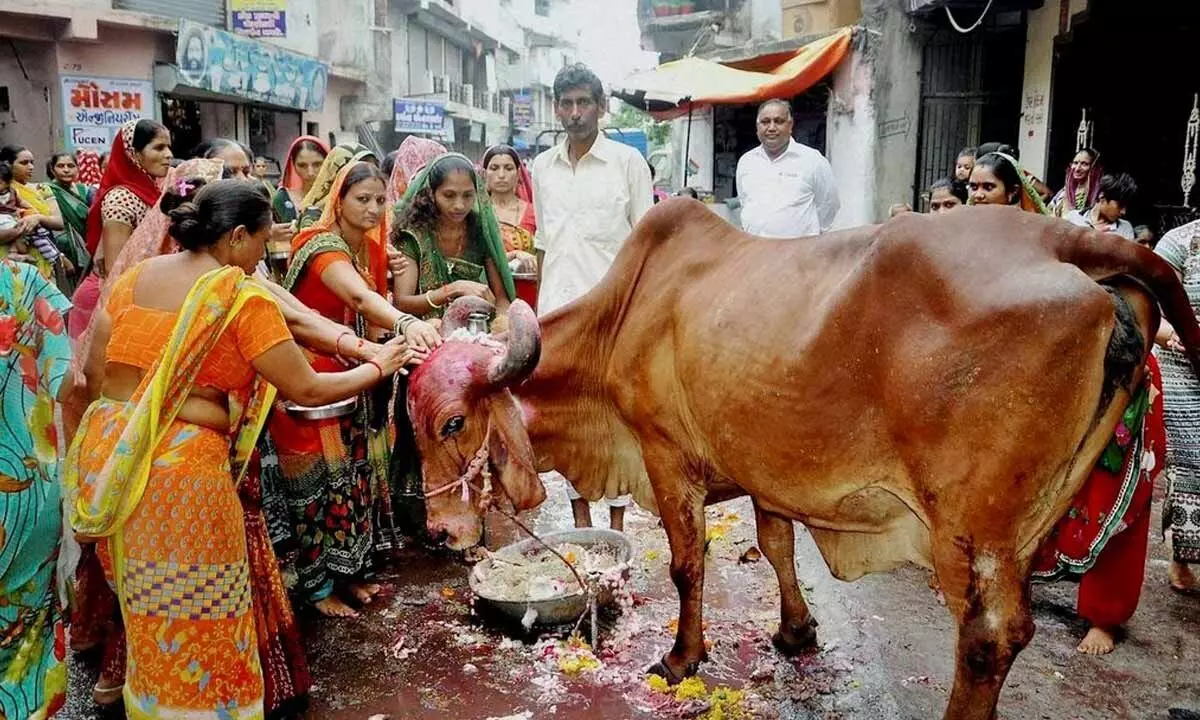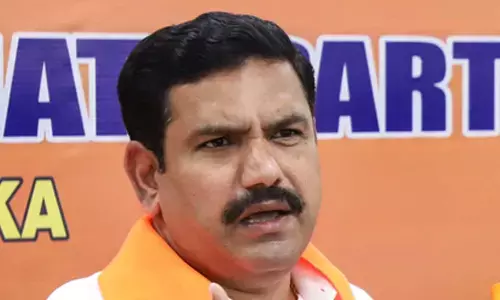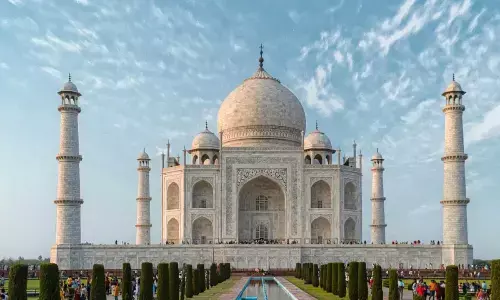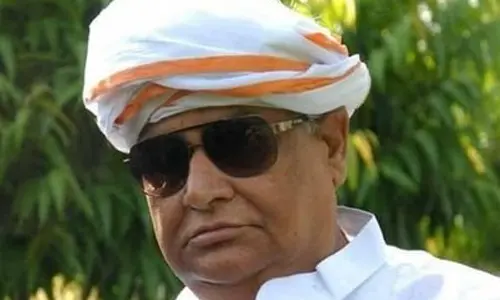Bharat’s culture and practices: A pathway to sustainable development

In the year 2018, a bungalow in Amritsar metamorphosed from a private space to a ground for critical thinking, poetry recitation, cultural deliberations, book readings and more
Bharat’s rich cultural heritage is rooted in a deep respect for nature and mindful resource use. The way of life emphasizes the sanctity of the environment through practices like worshiping trees, rivers, and animals. Traditional practices, such as rainwater harvesting and using natural materials, promote minimal waste and eco-friendly living. Upcycling clothes and minimizing disposables are also ingrained in daily life. Ayurveda, an ancient medical system, promotes living in harmony with nature through plant-based diets and the use of spices and herbs for healing. Despite facing challenges like population growth and pollution, there is a growing movement to revive traditional wisdom, such as sustainable fashion using organic materials and social enterprises promoting upcycling. By embracing these practices and fostering innovation, Bharat can navigate the path to a greener future.
Sustainable development emphasizes the need to balance economic growth, environmental preservation, and social well-being. In Bharat, a country rich in cultural heritage and traditional practices, sustainability is deeply embedded in the way of life, drawing from ancient wisdom and practices that emphasize harmony with nature, community-centric living, and resource conservation.
Bharat culture and practices contribute to sustainable development by promoting traditional knowledge and ecological harmony, water conservation techniques, community-centric living, sustainable architecture and living, biodiversity conservation, and circular economy practices. Traditional knowledge and practices in India include crop rotation, intercropping, organic farming, Ayurveda, water conservation techniques, community-centric living, sustainable architecture and living, biodiversity conservation, and circular economy practices.
Traditional knowledge and ecological harmony are evident in the Vedas and Upanishads, which advocate for a symbiotic relationship between humans and nature. Ayurveda, the traditional Indian system of medicine, emphasizes a holistic approach to health, focusing on the balance between the body, mind, and spirit. It relies on natural remedies derived from plants and minerals, promoting the use of locally sourced, biodegradable materials.
Water conservation is deeply ingrained in Indian culture, with traditional water management systems such as step wells (baolis) and rainwater harvesting structures designed to efficiently capture and store water. These systems, found across various regions of India, ensure the sustainable use of water resources, crucial for agriculture and daily living, especially in arid areas.
Community-centric living is another important aspect of Bharat. Practices such as Sarvodaya (the upliftment of all) and Antyodaya (the upliftment of the most disadvantaged) highlight the importance of inclusive growth and social equity. The traditional concept of “Gram Swaraj” or village self-governance promotes local self-reliance and sustainable development by empowering communities to manage their resources and development needs.
Traditional architecture, with its use of locally available materials like mud, stone, and bamboo, exemplifies sustainable building practices. The design of traditional homes, such as the havelis of Rajasthan and the wadas of Maharashtra, incorporates natural ventilation and passive cooling techniques, reducing the need for artificial cooling and heating. This not only preserves the environment but also creates comfortable living spaces that are in harmony with the local climate.
Biodiversity conservation is another significant aspect of Bharat culture and practices. Sacred groves, protected patches of forest for their spiritual significance, serve as biodiversity hotspots, preserving a wide variety of plant and animal species and maintaining ecological balance. This tradition reflects a deep-seated respect for nature and an understanding of the need to protect and conserve natural resources for future generations.
Circular economy practices are also prevalent in India. Traditional practices, such as the repair and repurposing of goods, support a circular economy that minimizes waste. The widespread use of “jugaad,” a term for innovative, resource-efficient solutions, demonstrates the ethos of making the most out of available resources and extending the life cycle of products.
Bharat’s culture and practices provide a blueprint for sustainable development, demonstrating that modern growth and traditional wisdom can coexist. By embracing and revitalizing these practices, the country can lead the way in sustainable living, ensuring a balanced approach to development that respects the environment, supports social equity, and fosters economic resilience.
There are numerous villages that have successfully integrated traditional practices for sustainable development. Adarsh Gaon in Maharashtra, inspired by Ralegan Siddhi, employs rainwater harvesting and watershed management to ensure sustainable water supply for agriculture and daily use. The village also practices community-centric living, prioritizing community welfare and managing resources sustainably.
Hiware Bazar in Maharashtra focuses on organic farming and mixed cropping, reducing reliance on chemical fertilizers and pesticides. The village has implemented extensive watershed management techniques, including check dams and contour trenches, to capture and store rainwater, leading to increased agricultural productivity, improved water availability, and higher incomes for the villagers.
Mawlynnong in Meghalaya follows a strict community-driven approach to cleanliness and waste management, maintaining sacred groves where cutting trees is prohibited. This has led to the village becoming a model for sustainable living, attracting eco-tourism and ensuring the well-being of its residents.
Piplantri in Rajasthan follows an environmental conservation initiative, planting 111 trees in honor of every girl child born, resulting in over 350,000 trees being planted. The village has implemented rainwater harvesting and built check dams, ensuring sustainable water supply even in arid conditions.
Sukhomajri in Haryana practices sustainable agriculture, using watershed management and soil conservation techniques to improve agricultural productivity and reduce soil erosion. The village has constructed check dams to capture rainwater, providing a reliable water source for irrigation and household use.
Kuthambakkam in Tamil Nadu uses sustainable architecture, promoting cooperative businesses and local self-sufficiency, fostering social equity. Dharnai in Bihar is first fully solar-powered village, providing a sustainable and reliable energy source for all households and businesses. The solar micro-grid is managed by the community, ensuring equitable access and local employment opportunities.
Odanthurai in Tamil Nadu generates its electricity through wind turbines and solar power, ensuring a sustainable and cost-effective energy supply. The village’s practices demonstrate how traditional practices, when integrated with modern sustainability principles, can lead to prosperous and resilient communities.









